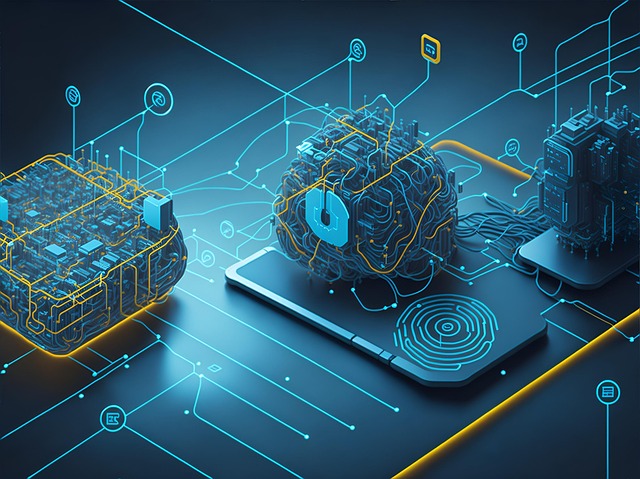AI automation for automotive repair scheduling optimizes processes by managing appointments based on historical data and customer preferences, minimizing errors and maximizing workforce utilization. It predicts equipment failures through analysis of sensor data, enhancing efficiency and service quality. AI-driven chatbots provide quick support for initial inquiries, reducing wait times and improving productivity, ultimately boosting customer satisfaction.
In today’s digital age, car shops are exploring innovative AI productivity strategies to stay ahead. This article delves into three powerful applications of artificial intelligence designed to revolutionize automotive service operations. We explore how AI automation can streamline scheduling, making appointments more efficient. Additionally, we discuss predictive maintenance, leveraging data insights for enhanced repair accuracy. Through personalized customer experiences with chatbots, shops offer quick support, fostering client satisfaction and loyalty. Discover how these AI strategies can transform car shop management.
- Streamline Scheduling: AI Automation for Efficient Appointments
- Predictive Maintenance: Enhancing Repairs with Data Insights
- Personalized Customer Experiences: Chatbots for Quick Support
Streamline Scheduling: AI Automation for Efficient Appointments

Car shops can significantly enhance their productivity by implementing AI automation in automotive repair scheduling. This technology streamlines the process, reducing manual effort and potential errors. AI algorithms can intelligently manage appointments based on historical data, resource availability, and customer preferences. By automatically generating optimized schedules, car shops can ensure efficient use of their workforce, minimizing downtime and maximizing revenue.
Furthermore, AI automation for automotive repair scheduling allows for real-time adjustments. It can dynamically respond to unexpected changes, such as urgent repairs or technician unavailability, by promptly rescheduling or reassigning appointments. This adaptability enhances customer satisfaction by offering convenient time slots and ensuring timely service.
Predictive Maintenance: Enhancing Repairs with Data Insights

Car shops can leverage AI to transform their operations, and predictive maintenance is a powerful strategy in this regard. By analyzing vast amounts of data from vehicles’ sensors, historical repair records, and performance metrics, AI algorithms can predict potential issues before they become costly repairs. This proactive approach enables mechanics to schedule maintenance at the optimal time, reducing downtime for customers and increasing efficiency.
For instance, AI automation can identify patterns in equipment failures, allowing for predictive scheduling of automotive repair tasks. Using machine learning models, the system can anticipate when specific components are likely to fail, ensuring that parts are ordered ahead of time and mechanics are ready for the necessary repairs, enhancing overall productivity and service quality.
Personalized Customer Experiences: Chatbots for Quick Support

Personalized customer experiences have become a competitive edge in the automotive industry. Chatbots, powered by AI automation, are transforming car shop interactions by offering quick and efficient support. These virtual assistants can handle initial customer inquiries, such as scheduling automotive repairs, providing estimated costs, and even answering basic diagnostic questions.
By implementing AI-driven chatbots, car shops can reduce wait times, improve response rates, and offer a seamless experience from the moment customers reach out. This not only enhances customer satisfaction but also allows shop staff to focus on more complex tasks, ultimately increasing overall productivity.
Implementing AI productivity strategies, such as automated scheduling, predictive maintenance, and personalized customer support through chatbots, can significantly transform car shops’ operations. By leveraging AI automation for automotive repair scheduling, these shops can streamline appointments, optimize resource allocation, and enhance overall efficiency. With data-driven insights from predictive maintenance, repairs become more accurate and timely, reducing downtime for vehicles. Personalized customer experiences through chatbots not only provide quick support but also foster stronger client relationships. Adopting these AI strategies can set car shops apart in today’s competitive market, ensuring they stay ahead of the curve in automotive care.
